What is the full form of BUMS in MedicalBUMS in Medical: Bachelors of Unani Medicine and SurgeryBUMS stands for Bachelors of Unani Medicine and Surgery. Ancient Greece gave birth to the traditional medical system known as unani, which was subsequently developed in Persia and India. The idea is to balance the body's four senses of humour which are blood, mucus, yellow bile, and black bile. According to unani Medicine, a balance between these senses of humour is necessary for optimal health. 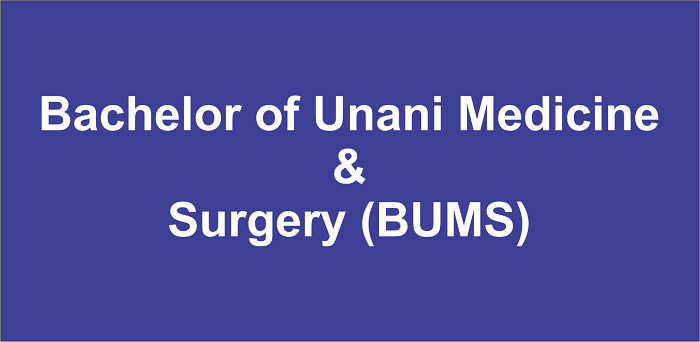
An all-encompassing strategy for healthcare, unani medicine, and surgery considers a person's physical, mental, emotional, and spiritual needs. It employs various disease diagnosis and treatment techniques, including surgery, physical therapy, herbal remedies, and dietary changes. The body's inherent healing capacity forms the foundation of unani Medicine and surgery. The purpose of therapy is to aid and accelerate this organic healing process. According to unani practitioners, each person is unique, and treatment should be customized to meet those requirements. Unani Surgery and Medicine are now widely used throughout the globe, particularly in Bangladesh, Pakistan, the Middle East, and India. It is accepted as complementary and alternative Medicine and frequently works in tandem with contemporary Medicine to give patients all-encompassing care. The Origins and Evolution of Unani MedicineAncient Greece originates from the long and rich past of unani Medicine. It was created by the Greek physician Hippocrates and his adherents, who thought that diseases were brought on by an imbalance of the four senses of humour (blood, phlegm, yellow bile, and black bile) and that the human body had an innate ability to heal itself. Muslim physicians brought Unani Medicine to Persia in the 7th century and added their expertise and techniques to the system. Arabic, which developed into science and medicine vocabulary in the Islamic world, was used to translate Greek texts. The growth of Unani Medicine was significantly influenced by the Persian polymath Ibn Sina, also known as Avicenna, whose well-known medical text, the Canon of Medicine, served as a standard medical textbook in Europe for many years. By the way of Muslim doctors and scholars in the 12th century, Unani Medicine was brought to India. Unani-Tibb is the distinctive fusion of Unani, and Ayurvedic Medicine created due to the system's adaptation to the local conditions and incorporation of Indian medical knowledge. Unani Medicine experienced a decline in prominence during the colonial era, and many practitioners shifted to Modern Medicine. However, it has recently seen a resurgence with increased interest in complementary and alternative treatment. Many nations, including India, Pakistan, Bangladesh, and the Middle East, recognize Unani Medicine as a unique medical method and the introduction of new studies and innovations keeps growing and evolving. Unani Medical Philosophy and Principles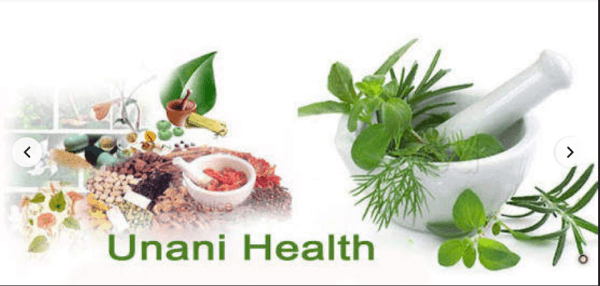
The foundation of Unani Medicine's theory and guiding principles is that the body's four touches of humour (blood, phlegm, yellow, and black bile) must be balanced. According to the Unani medical system, diseases are brought on by an imbalance in these touches of humour proportions, and health is a condition of harmony and balance between them. In addition, the Unani medicine method emphasizes treating the person as a whole rather than just the disease or symptoms. It believes a holistic approach to therapy is crucial for good health and considers a person's physical, mental, emotional, and spiritual aspects. Unani Medicine strongly emphasizes using herbal remedies, minerals, and animal products in diagnosing and treating illness. It also encourages healthy choices like exercise, diet, and stress management to balance the touches of humour and prevent disease. In Unani Medicine, the patient's physical, mental, and emotional health are all carefully examined, along with their medical background and way of living. The treatment course is customized to meet each patient's needs and may entail dietary changes, herbal remedies, physical therapy, and surgery. The Unani system of Medicine emphasizes the significance of maintaining good health through preventive measures and lifestyle choices and acknowledges the value of preventive Medicine. To attain optimal health and well-being, the philosophy and guiding principles of unani Medicine are centred on encouraging balance and harmony in the body, mind, and spirit. Physiology and Anatomy in Unani MedicineIn Unani Medicine, anatomy and physiology are crucial. The human body comprises seven fundamental components, known as Umoor-e-Tabiya in the unani School of Medicine. These are the following:
According to Unani Medicine, a healthy equilibrium of the four touches of humour (blood, phlegm, yellow bile, and black bile) is necessary for well-being. The body's various organs create these touches of humour, which preserve the body's physiologic and psychological processes. The Unani method of Medicine is aware of the digestive system's role in preserving health. According to Unani Medicine, the digestive system transforms and assimilates food and produces the vital touches of humour that the body needs to function. Additionally, it acknowledges the significance of the circulatory system in delivering vital nutrients and touches of humour to the body's cells and tissues. According to unani Medicine, the human body is divided into the three basic Mizaj (temperament) components hot, cold, and moist. These components help diagnose and treat various conditions and identify a person's propensity for particular diseases. According to the Unani system of Medicine, the nervous system plays a crucial role in preserving equilibrium and harmony of the touches of humour. Additionally, it highlights the significance of keeping mental health and acknowledges the connection between the body, mind, and spirit. The Unani system of Medicine highly values anatomy and physiology because they are critical to identifying and managing various illnesses and conditions. 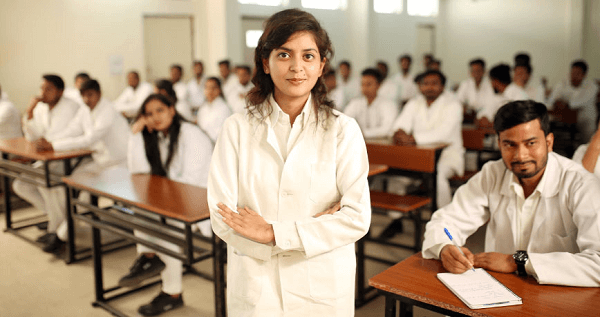
Unani's Medical DiagnosisUnani medicine bases diagnosis on a holistic method that considers the patient's bodily, mental, emotional, and spiritual health. The patient's medical history, symptoms, and physical exams are carefully reviewed to determine the diagnosis. Six crucial stages are involved in the diagnostic procedure in unani Medicine: Tasnif (Categorization)The doctor groups the patient's symptoms into a particular area according to their attributes, such as their location, degree of intensity, and nature. Tabiea (Nature of Disease)The doctor then ascertains the disease's nature using the patient's symptoms, medical background, and physical examination results. Tashkhis (Diagnosis)The doctor makes a prognosis based on the particular group of symptoms and the ailment's characteristics. Tashkhis-e-Sabab (Diagnosis of Causative Factors)The medical professional determines the causes of the illness, such as dietary practices, environmental factors, or living decisions. Taqseem (Prognosis)The doctor forecasts how the illness will progress based on the patient's current health and the disease's characteristics. Tadbeer (Therapy)Based on the diagnosis, contributing factors, and prognosis, the doctor creates a therapy strategy. Pulse diagnosis, or Nadi Pariksha, is another step in the diagnostic procedure in unani Medicine. The doctor checks the patient's pulse to determine which humours are out of balance. This aids in the identification and management of numerous diseases. 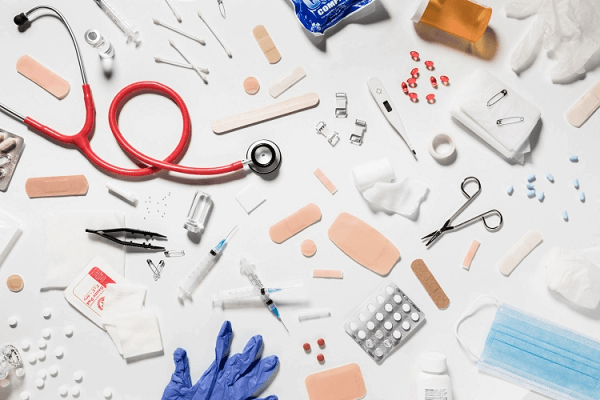
Overall, Unani Medicine's approach to diagnosis is thorough and considers the patient's bodily, mental, emotional, and spiritual health. Symptoms are categorized, the nature of the illness is determined, the causes are found, the prognosis is predicted, and a treatment strategy is developed as part of the diagnostic process. Unani Medicine's Modalities of TreatmentUnani Medicine strongly emphasizes using herbal remedies, minerals, and animal products in diagnosing and treating illness. The Unani system of Medicine also acknowledges the significance of healthy lifestyle decisions to balance the touches of humor and ward off disease, including exercise, diet, and stress management. Unani Medicine uses a variety of treatment methods, including: Ilaj bil Ghiza (Dietary therapy)Unani Medicine emphasizes the value of a healthy diet and dietary adjustments to prevent and treat various illnesses. To keep a balance between the touches of humour and encourage good health, the doctor might advise against eating certain foods or prescribing others. Ilaj bil Dawa (Pharmacotherapy)To avoid and treat illness, unani Medicine uses organic ingredients like herbs, minerals, and animal products. These medications are given based on the patient's specific requirements and the nature of the illness. They are prepared in various forms, including powders, pills, and decoctions. Ilaj bil Yad (Surgery)Unani Medicine understands the value of surgery in managing some diseases, such as tumors, abscesses, and fractures. Unani surgeons use organic ingredients like herbs and oils to prepare patients for operation and speed up recovery afterward. Ilaj bil Ruqyah (Spiritual Therapy)Ilaj bil Ruqyah, a spiritual treatment, acknowledges the significance of spiritual health for preserving physical health. Spiritual counselling may include meditation, prayer, or other practices to encourage mental and emotional balance. Ilaj bil Tadbeer (Regimenal Therapy)Unani Medicine understands the significance of environmental factors in preserving sound health. Exercise, hydrotherapy, massage, and other regimental therapy balance the touches of humour and ward off illness. Unani Medicine generally encourages a holistic strategy to treatment, where the doctor considers the patient as a whole rather than just concentrating on the illness or symptoms. The goals of the various treatment methods are to balance the touches of humor once more, encourage healthy lifestyle decisions, and ward off illness. Unani Medicine's Use of PharmacologyThe four touches of humour or temperaments are the foundation of Unani Medicine's pharmacology thought to be in charge of sustaining health and, when out of balance, of causing illness. Diseases are prevented and treated by unani Medicine using natural ingredients like plants, minerals, and animal products. Natural substances are favoured over synthetic ones because they are thought to have fewer side effects. Based on their pharmacological actions, drugs are divided into three groups in unani Medicine: 
MualijatThese medications, known as mualijat (therapeutic drugs), cure illnesses and balance the touches of humour. They are categorized according to their work, such as hot, chilly, dry, and moist. MufradatSimple drugs, or mufradat, are naturally used as solitary herbs or medications. According to how they taste, they are categorized as sweet, acidic, salty, savoury, and bitter. MurakkabatCompound drugs, or murakkabat, are mixtures of two or more simple medications. According to their therapeutic benefits, they are categorized as anti-inflammatory, anti-spasmodic, and anti-microbial. Drugs are prepared in unani Medicine using various techniques, including decoction, infusion, powdering, and evaporation. When prescribing medications, the doctor considers the patient's specific requirements and the nature of the illness. The treatment's dosage and length are also customized based on the patient's state. Unani Medicine attributes the pharmacological effects of drugs to their distinct characteristics, such as hot, cold, dry, and moist, and their effects on the four touches of humor. Additionally, the medicines are thought to contain a life force or energy that influences the patient's general health and well-being. In general, Unani Medicine places a strong emphasis on the use of herbal remedies to treat and avoid illness. Natural remedies are justified by the notion that they are safer and more effective at re-establishing the harmony of the touches of humour. In unani Medicine, drug preparation and administration are tailored to the patient's requirements and the illness's specifics. Procedures and Surgery in AyurvedaSurgery is crucial in healing some conditions, such as tumours, abscesses, and fractures, according to unani Medicine. Unani surgeons use organic ingredients like herbs and oils to prepare patients for operation and speed up recovery afterward. Among the frequently employed unani surgical methods and approaches are: Shara (Cupping)Cupping is a therapeutic method for reducing inflammation and discomfort. To pull the skin and underlying tissue into the cup, heated cups are placed on the skin and used to generate a vacuum. This method helps increase blood flow, eliminate toxins, and encourage recovery. 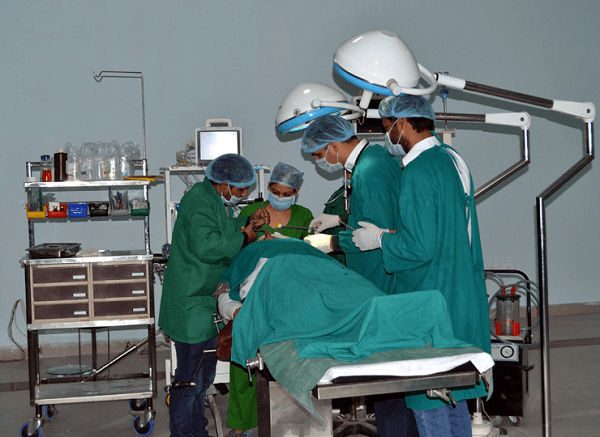
Fasd (Venesection)Venesection is opening a vein to drain the body of extra blood, according to Fasd. Treatment for ailments like high blood pressure and blood diseases uses this method. Amraze Anaf (Anal Diseases)The Unani method of Medicine understands the significance of treating conditions affecting the anal region, such as piles (haemorrhoids) and fistula. Unani surgeons address these diseases using organic ingredients like herbs and oils. Fiqh-ul-Usrah (Obstetrics and Gynecology)The significance of maternal and child health is acknowledged by unani Medicine, or fiqh-ul-surah (obstetrics and gynecology). Unani surgeons handle pregnancy and childbirth-related ailments like postpartum haemorrhage and challenging labor with natural remedies. Jarahat (Surgery)Unani Medicine acknowledges the value of surgery in managing some diseases, including fractures, tumors, and abscesses. Unani surgeons use organic ingredients like herbs and oils to prepare patients for operation and speed up recovery afterward. In general, surgical treatments are important in treating some conditions, according to unani Medicine. Unani surgeons use natural remedies, including herbs and oils, to prepare patients for operation and speed up recovery afterward. The patient's condition and requirements are considered when developing the Unani surgical methods. Disease Treatment and Unani MedicineA holistic approach to health care, unani medicine emphasizes illness management and disease prevention. Maintaining good health considers a person's overall well-being, including physical, mental, and emotional well-being. It also seeks to rebalance its four touches of humour or temperaments. The following procedures are used in unani Medicine to treat illnesses: DiagnosisClinical examination, medical history, and laboratory studies are all combined to make the diagnosis by the Unani doctor. The doctor considers the patient's personality, way of life, and other elements that might add to the disease. Regimenal TherapyTo cure illnesses, unani Medicine employs a variety of non-pharmacological therapies. Diet, exercise, massage, and hydrotherapy are part of routine treatment. Based on the patient's state and temperament, these treatments are customized. PharmacotherapyTo avoid and treat illnesses, unani Medicine uses organic materials like herbs, minerals, and animal products. Based on the condition and temperament of the patient, the unani doctor recommends medications. The pharmacological actions of the drugs are categorized, and different techniques are used to prepare them.
Next TopicFull Forms List
|
 For Videos Join Our Youtube Channel: Join Now
For Videos Join Our Youtube Channel: Join Now
Feedback
- Send your Feedback to [email protected]
Help Others, Please Share










